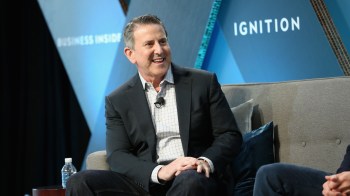Question: I have two questions; the past 3 1/2 years I’ve had some bad luck a death in the family, family illness, and a divorce. Thinking about money stresses me out what to do with it, how to invest I just need a simple reference guide on what to do or a guide on how to choose a money manager. I turn 40 next year and I have yet to start a 401(k) because I do not understand it and it intimidates me. I am too embarrassed to ask for help because of my age. My divorce wiped me out of all of my assets but I do have a job and for that I’m grateful. My second question is, is it too late for me to invest enough money at my age to have a good retirement? Whatever guidance you can give me would be greatly appreciated I lie awake at night concerned about my future getting depressed not knowing what steps I have to take to improve my situation. Thank you for your time. Sincerely, Paranoid, Chino, CA
P.S. I am too embarrassed to give my real name but theses are real questions I have.
Answer: You have had to deal with a lot these past few years. But there is absolutely no reason to be embarrassed about your financial questions. There are hundreds of thousands of 30-somethings and 40-somethings that are in similar circumstances, at least when it comes to their retirement plans.
You have plenty of time to save for retirement. You’ll do fine over the coming years if you focus on keeping your savings strategies simple and mainatining a conservative financial approach with your money.
I’m glad your job offers a 401(k) since it makes it that much easier to set up a retirement plan. Better yet, I hope the company offers a match to your contributions. It’s a nice boost to your compensation. Anyway, swallow hard and call human resources and say you want to open up a 401(k) account. I imagine money is tight so start out with a small sum of money. You can always increase the amount of money you put in later on if your pay or your familiarity with investments improves. What you can’t get back is time–and it is with time that even small contributions compound into larger sums of money.
What option to choose? The simplest is probably the target-date fund. These are mutual funds that offer investors a well-diversified portfolio that automatically gets more conservative as the “target retirement” date nears. If you have a choice of target dates funds pick the one labeled “for conservative investors,” or something to that effect. Don’t want any stocks in your portfolio. Fine. Just put the money into a relatively short-term government bill-and-note mutual fund or even the money market mutual fund.
In other words, let’s get the account up and running. Stay conservative with an eye toward preserving your savings rather than taking on too much risk. You can always change your investment choices later on.
Now, I’m wary of you picking a money manager. One of the biggest mistake people make when it comes to financial planning is turning their money over to a professional and assume they’ll do all the hard work. It’s a recipe for financial disappointment at best, and possibly much worse. When I lived in New York, the discount clothing store Syms always ended its television commercials with the line: “An educated consumer is our best customer.” That’s holds for money managers and financial planners, too.
Instead, I’m going to recommend two books that I think would help you through this confusing time. My book The New Frugality is geared toward keeping finances simple. A book I like a lot is Smart and Simple Financial Strategies for Busy People by Jane Bryant Quinn. She’s the dean of personal finance journalists and I have learned a lot from her over the years.
The key for long-term planning is to start saving now. Some of the savings can go into a retirement plan and some into taxable accounts. It’s the discipline of saving a little bit here and a little bit there that will shore up your financfes over the long-haul.
There’s a lot happening in the world. Through it all, Marketplace is here for you.
You rely on Marketplace to break down the world’s events and tell you how it affects you in a fact-based, approachable way. We rely on your financial support to keep making that possible.
Your donation today powers the independent journalism that you rely on. For just $5/month, you can help sustain Marketplace so we can keep reporting on the things that matter to you.


















